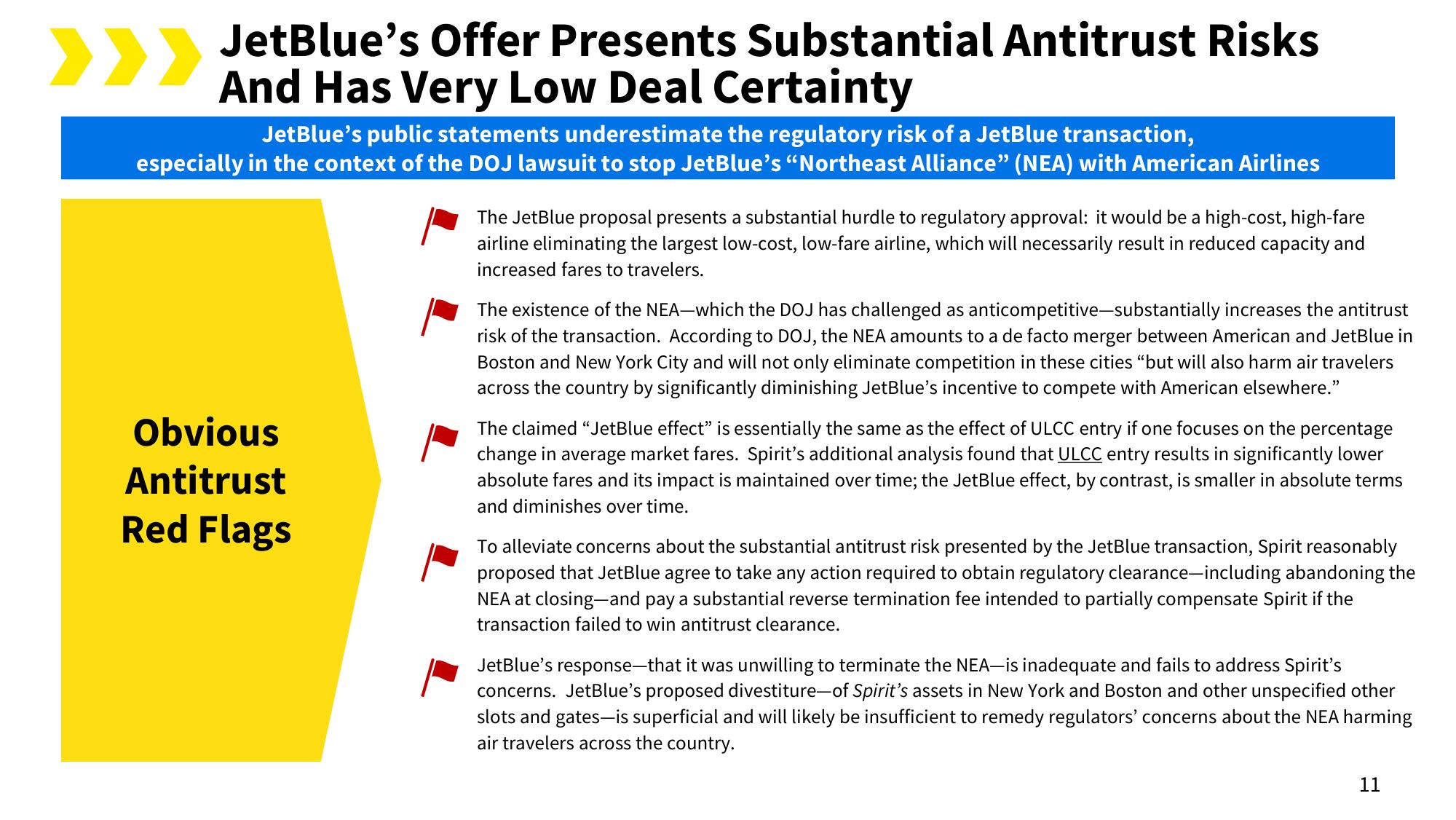Spirit Mergers and Acquisitions Presentation Deck
》》》 JetBlue's Offer Presents Substantial Antitrust Risks
And Has Very Low Deal Certainty
JetBlue's public statements underestimate the regulatory risk of a JetBlue transaction,
especially in the context of the DOJ lawsuit to stop JetBlue's "Northeast Alliance" (NEA) with American Airlines
Obvious
Antitrust
Red Flags
The JetBlue proposal presents a substantial hurdle to regulatory approval: it would be a high-cost, high-fare
airline eliminating the largest low-cost, low-fare airline, which will necessarily result in reduced capacity and
increased fares to travelers.
The existence of the NEA-which the DOJ has challenged as anticompetitive-substantially increases the antitrust
risk of the transaction. According to DOJ, the NEA amounts to a de facto merger between American and JetBlue in
Boston and New York City and will not only eliminate competition in these cities "but will also harm air travelers
across the country by significantly diminishing JetBlue's incentive to compete with American elsewhere."
The claimed "JetBlue effect" is essentially the same as the effect of ULCC entry if one focuses on the percentage
change in average market fares. Spirit's additional analysis found that ULCC entry results in significantly lower
absolute fares and its impact is maintained over time; the JetBlue effect, by contrast, is smaller in absolute terms
and diminishes over time.
To alleviate concerns about the substantial antitrust risk presented by the JetBlue transaction, Spirit reasonably
proposed that JetBlue agree to take any action required to obtain regulatory clearance-including abandoning the
NEA at closing-and pay a substantial reverse termination fee intended to partially compensate Spirit if the
transaction failed to win antitrust clearance.
JetBlue's response-that it was unwilling to terminate the NEA-is inadequate and fails to address Spirit's
concerns. JetBlue's proposed divestiture-of Spirit's assets in New York and Boston and other unspecified other
slots and gates-is superficial and will likely be insufficient to remedy regulators' concerns about the NEA harming
air travelers across the country.
11View entire presentation